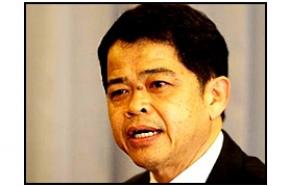ID :
170272
Wed, 03/23/2011 - 13:09
Auther :
Shortlink :
http://m.oananews.org//node/170272
The shortlink copeid
Oil prices to remain volatile

BANGKOK, March 23 (TNA) - Unrest in the Middle East and the difficulties in post-disaster Japan are affecting world major oil producers, and continuing to perpetuate unstable energy prices, says a Thai energy expert.
Prasert Bunsumpun, as CEO of the Thai petroleum giant PTT PLC, made the remark Wednesday morning, insisting although the no-fly zone enforced on Libya by the UN last week has minimised risks in the African state, uncertainty largely remains in the Middle East, and could eventually spark off another surge in oil prices by at least 20 U.S. dollars per barrel.
Regarding the halt of production at several of Japan’s oil refineries, which produce a combined daily capacity of about 1 million barrels of oil, Prasert dismissed any setbacks, saying the freeze has come temporarily and operations will soon resume.
Meanwhile, Prasert said he expects electricity providers in Japan to start acquiring refined petroleum for energy production, aiming to replace the use of nuclear plants in the aftermath of the March 11 disaster. This, he added, will also boost oil prices in the international markets, as witnessed from the recent rise in Singapore’s diesel price to beyond 130 US dollars a barrel. This shift had prompted the Thai government to cap diesel prices below 30 baht a litre until the end of April, to help ease domestic production costs, he explained.
In a related development, Prasert acknowledged the closure of Japan’s petroleum and aromatic refineries, which accounts for 30 per cent of Japan’s total production capacity, almost 4 percent of the entire Asian market, has resulted in rising petrochemical product prices. However, he did say he expects only marginal gains for the industry in the short term. (TNA)
Prasert Bunsumpun, as CEO of the Thai petroleum giant PTT PLC, made the remark Wednesday morning, insisting although the no-fly zone enforced on Libya by the UN last week has minimised risks in the African state, uncertainty largely remains in the Middle East, and could eventually spark off another surge in oil prices by at least 20 U.S. dollars per barrel.
Regarding the halt of production at several of Japan’s oil refineries, which produce a combined daily capacity of about 1 million barrels of oil, Prasert dismissed any setbacks, saying the freeze has come temporarily and operations will soon resume.
Meanwhile, Prasert said he expects electricity providers in Japan to start acquiring refined petroleum for energy production, aiming to replace the use of nuclear plants in the aftermath of the March 11 disaster. This, he added, will also boost oil prices in the international markets, as witnessed from the recent rise in Singapore’s diesel price to beyond 130 US dollars a barrel. This shift had prompted the Thai government to cap diesel prices below 30 baht a litre until the end of April, to help ease domestic production costs, he explained.
In a related development, Prasert acknowledged the closure of Japan’s petroleum and aromatic refineries, which accounts for 30 per cent of Japan’s total production capacity, almost 4 percent of the entire Asian market, has resulted in rising petrochemical product prices. However, he did say he expects only marginal gains for the industry in the short term. (TNA)





